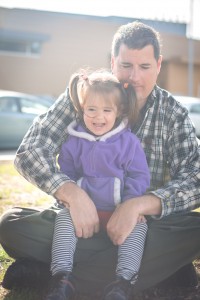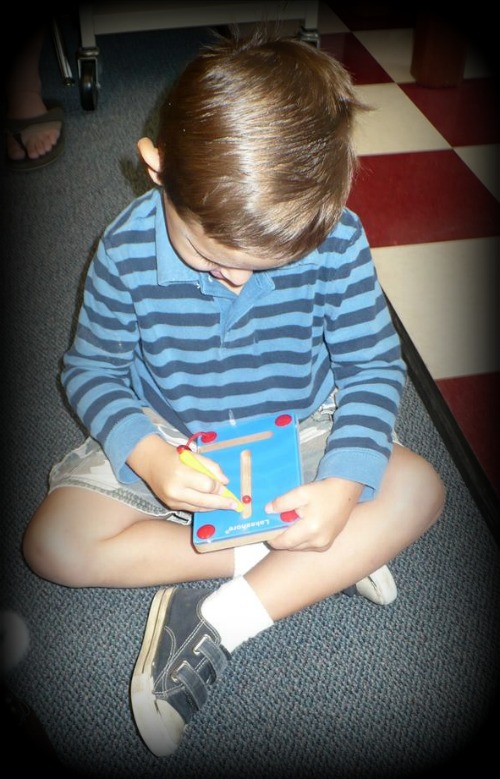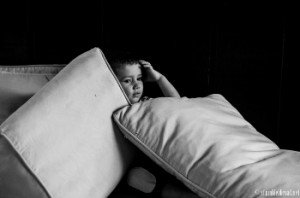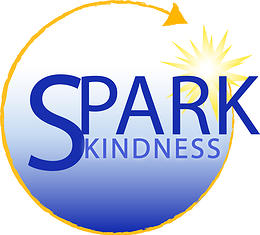
by Kyla P'an (Portugal) | Mar 24, 2014 | 2014, Awareness, Being Thankful, Childhood, Education, Eye on Culture, Family, Feminism, Inspirational, Language, Life Lesson, Parenting, Preschool, Relationships, USA, Womanhood, Women's Rights, World Mom Feature, World Moms Blog, World Motherhood, Younger Children
 From almost the moment our daughter came onto the scene eight years ago, we knew she had a strong personality. She was one of those incredibly alert and determined babies; the type you could tell was processing her surroundings and trying to figure out what to do about them.
From almost the moment our daughter came onto the scene eight years ago, we knew she had a strong personality. She was one of those incredibly alert and determined babies; the type you could tell was processing her surroundings and trying to figure out what to do about them.
While many babies and toddlers her age were delighted to be pushed in a swing, my daughter would have nothing to do with swings until she was old enough to figure out what made them go. She had no desire to be the passive recipient of being pushed, instead she wanted to be in control; she wanted to conquer it. She took the same approach with toys, puzzles and games. She was an early walker, a determined eater, and an all-around intense little thing.
My husband and I frequently got comments like: “boy, you’ve got your hands full with that one,” or “she’s going to keep you on your toes.”
As our daughter grew, by far her favorite activities involved sorting, organizing and problem solving. I have one vivid memory of her toddler music class, when she was just two years old. About three-quarters of the way through the class, the teacher put out a basket of instruments for the children to choose from and play along with. Our daughter, who was particularly fond of the little plastic eggs filled with beans—which she called shake-a’s—was determined to collect as many of them as possible. Driven by this singular motive, she went around the room delivering alternate instruments to fellow toddlers and parents alike. Anytime she encountered an individual who already had a shake-a, she’d attempt to persuade them with an alternate instrument in exchange until she had gathered a significant cache.
During these displays of self-assured behavior and go-get-‘em spirit, I often found myself shrinking into the background, hoping other parents wouldn’t fault me for having such a pushy, precocious child. At this particular music class, however, a parent approached me afterwards and commended me for having such a “strong child with clear leadership potential.” With her few words of encouragement, this parent liberated me from my deep mommy guilt about having a child with drive.
I was in constant conflict because, even though I am a child of the 70’s—a time when many of our mothers here in the US were breaking down stereotypes and entering the workforce en masse—I was raised by my father, who came from an old-world upbringing and had old-fashioned views of how boys and girls should behave.
I am reluctant to admit that, rather than celebrating my daughter’s inherent leadership qualities, I labeled her as “bossy” and occasionally even criticized her for being too demonstrative.
Bossy, a word inferring that someone is behaving “boss-like,” should be a compliment heralding someone’s leadership skills but ironically, instead it criticizes her for it. It’s a label reserved primarily for girls. You rarely hear it applied to boys. A little girl on the playground, organizing kids into teams and assigning them roles will quickly be knocked down a few rungs by calling her “bossy,” whereas a little boy taking the same actions might be respected and followed.
I’m ashamed to admit, even I supported this stereotype. I was concerned my daughter was too confident interacting with adults, leading activities and organizing groups. I was concerned she wasn’t “girly” enough, lacked empathy and a gentle, nurturing-side. As a modern, liberated and independent woman myself, I still didn’t want her peers to ostracize her or put her down.
Why was I struggling between nurturing and diminishing my daughter’s inner boss? Why was I uncomfortable with her being a leader, or overly-confident or intensely goal oriented? What could I do to help raise this new generation of girl-leaders?
Two weeks ago I got some reassuring answers. They were in the Wall Street Journal, on a full-page, front-of-section article titled, “Don’t Call Us Bossy.” And the women giving the encouragement were the Chief Operating Officer of Facebook, Sheryl Sandberg, and the Chief Executive Officer of Girl Scouts, USA, Anna Maria Chavez.
Sandberg and Chavez’s goal is to redirect our thinking about the way girls lead. To relabel our vocabulary about girls’ take-charge behavior. Instead of bossy behavior, recognize it as executive leadership potential, like CBS television anchor, Norah O’Donnell does. Instead of discouraging ambitious goals, support girls to recognize their inherent ability to achieve whatever goal they set out for.
I think the world would be a very different—and frankly far more pleasant—place to live in if there were more “bossy” women in charge.
Let’s take a stand to have more female bosses in the workplace; Here’s to raising our girls to be the leaders they are capable of being, not the followers our lexicon makes them feel they are supposed to be!
Did anyone ever call you “bossy” growing up? Do you see these qualities in your own child? How do you feel about assertive and confident girls?
For ways to encourage leadership in girls, visit LeanIn.org and BanBossy two of the movements supported by Sheryl Sandberg, Ana Maria Chavez and Girl Scouts, USA.
This is an original post to World Moms Blog from our managing editor and mother of two, Kyla P’an.
The image used in this post is credited to Pat Moore. It holds a Flickr Creative Commons attribution license.
Kyla was born in suburban Philadelphia but spent most of her time growing up in New England. She took her first big, solo-trip at age 14, when she traveled to visit a friend on a small Greek island. Since then, travels have included: three months on the European rails, three years studying and working in Japan, and nine months taking the slow route back from Japan to the US when she was done. In addition to her work as Managing Editor of World Moms Network, Kyla is a freelance writer, copy editor, recovering triathlete and occasional blogger. Until recently, she and her husband resided outside of Boston, Massachusetts, where they were raising two spunky kids, two frisky cats, a snail, a fish and a snake. They now live outside of Lisbon, Portugal with two spunky teens and three frisky cats. You can read more about Kyla’s outlook on the world and parenting on her personal blogs, Growing Muses And Muses Where We Go
More Posts - Website
Follow Me:


by Ewa Samples | Mar 21, 2014 | 2014, Being Thankful, Child Care, Childhood, Family, Girls, Home, Inspirational, Kids, Life Balance, Life Lesson, Me-Time, Motherhood, Music, Parenting, Polish Mom Photographer, Teenagers, USA, Working Mother, World Motherhood, Younger Children
 All parents agree, once their first child came into their lives, everything changed. Our life routine changed, some of our friends changed, our clean house no longer stayed clean, the term “empty laundry basket” became an abstract thing, our plans for the future changed…even some of our dreams. We no longer sleep, we no longer eat, we no longer have the time to take care of ourselves as much as we wish. Eating at a dining table is a privilege, at least in my house, because most of my meals are consumed on the run, and my kids are not even in school yet!
All parents agree, once their first child came into their lives, everything changed. Our life routine changed, some of our friends changed, our clean house no longer stayed clean, the term “empty laundry basket” became an abstract thing, our plans for the future changed…even some of our dreams. We no longer sleep, we no longer eat, we no longer have the time to take care of ourselves as much as we wish. Eating at a dining table is a privilege, at least in my house, because most of my meals are consumed on the run, and my kids are not even in school yet!
I go to mom’s groups, family gatherings, coffee with friends, and I hear the same thing over, and over again: “It will all pass faster than you expect, and you’ll become free again.” No more dirty diapers, no more wiping floors and ceilings after each meal, no more sleepless nights, no more this, and no more that…
And I’m thinking, is it really all that bad…having young children around? Is it really that hard? Yes, it is hard, but it will become harder. Sleepless nights, because the baby is hungry, or because she needs a new diaper will change to sleepless nights because my daughters are out on a date, or on a road trip across the country, and I’m left with all the visions in my head about what may go wrong out there. (more…)
Ewa was born, and raised in Poland. She graduated University with a master's degree in Mass-Media Education. This daring mom hitchhiked from Berlin, Germany through Switzerland and France to Barcelona, Spain and back again!
She left Poland to become an Au Pair in California and looked after twins of gay parents for almost 2 years. There, she met her future husband through Couch Surfing, an international non-profit network that connects travelers with locals.
Today she enjoys her life one picture at a time. She runs a photography business in sunny California and document her daughters life one picture at a time.
You can find this artistic mom on her blog, Ewa Samples Photography, on Twitter @EwaSamples or on Facebook!
More Posts - Website
Follow Me:





by Sophie Walker (UK) | Mar 17, 2014 | 2014, Being Thankful, Childhood, Education, Girls, Kids, Life Lesson, Motherhood, Parenting, Preschool, Sophie Walker, Special Needs, UK, Uncategorized, World Motherhood, Younger Children
 Betty and I are walking to school in the rain. It is a miserable morning – grey, cold and squally. We are tilting our umbrellas sideways to shield ourselves from the gusts of needles thrown at us as we progress along the avenue. I am forcing bright chatter and thinking of the warm cup of tea I will have when I get home.
Betty and I are walking to school in the rain. It is a miserable morning – grey, cold and squally. We are tilting our umbrellas sideways to shield ourselves from the gusts of needles thrown at us as we progress along the avenue. I am forcing bright chatter and thinking of the warm cup of tea I will have when I get home.
Betty’s umbrella is white and pink and round like a daisy. It has pretty little petals and yellow stripes, and a bumble-bee attached to the top. The bumble-bee is looking very sorry for himself this morning, buffeted hither and to. I can’t see Betty’s face but I can tell by the drag of her toes that she is feeling sorry for herself too.
I lean down and enquire: “How are you doing, darling?”
A woebegone voice answers. “Ok.”
Then she asks: “Mummy, did this umbrella used to belong to my big sister?”
I tell her yes, it did.
“And Mummy, did she used to walk to school with it too?”
Again, I aver, she did.
A pause. Then, cautiously: “Mummy, did my sister ever used to not want to go to school?”
I can see where this is going now and I give her hand a sympathetic little squeeze. I say yes, there were days when her big sister didn’t really feel like it either.
At this Betty stops and tips back the rim of her umbrella to look up at me. Her eyes are welling with tears. She asks: “And did she used to worry about making mistakes too?”
Betty started school last September at the age of four. She is now four and a half and a month into her second term. She flew through the first twelve weeks with ease – enthusiastic, inquisitive, and keen to try new things. This term, she has cried often on leaving me in the mornings. Afternoons start with jubilation at being home, then slide slowly from relaxation to upset as night approaches.
As soon as I call her for her bath it is her cue to start an hour-long conversation about whether or not she will have to go to school again in the morning.
Now I look at her, looking up at me, her face a mixture of rain and tears, and I think: She’s far too little for all this. I bend down to her and put my umbrella down and hug her. I tell her: “Everyone makes mistakes. It doesn’t matter about making mistakes. The thing is just to try your best. Have a little go.”
But as I’m saying it, I’m thinking that really, I just want to put her in my pocket and take her home. She is not yet five. She shouldn’t be afraid of new things in case she finds herself unable to do them to a standard that will make her happy.
Last term, she learned phonics – how to make the sounds of the alphabet. This term, she has realised that those phonics are letters and that by putting them together and sounding them out she can both read and write. And it terrifies her.
It is Learning with a capital ‘L’. Every day now she wonders what Learning she will have to conquer next.
The British education system is under huge scrutiny at the moment. The coalition government’s Conservative education minister Michael Gove has decided that it needs an overhaul. There is too much emphasis on coursework, so he has decreed the system should revert to a grand slam of end-of-year exams. There is not enough emphasis on rote learning, so reciting dates and times-tables are back in.
So far I have reacted to Gove’s decisions with horror mainly because of the impact they will likely have on my elder daughter, who has Asperger’s Syndrome, and will struggle even more under a system that removes the chance for her to shine via project work. Gove’s reforms are a disaster for Grace.
Now, looking at Betty, who I had expected to skip through the system, I find myself wondering how she will cope. Recently Gove said he was thinking of introducing formal assessments for four and five-year-olds when they enter school in England, in order to be able to monitor their progress.
I care that my children should progress well through the education system, and flourish in their chosen careers. But as I kissed Betty goodbye in her classroom that morning, and watched her teacher take her gently by the hand to distract her from her upset, I thought: there must be a better way to do this.
So – how do you do it, where you live? And do you think it works?
This is an original post to World Moms Blog from our writer in England, Sophie Walker.
The picture used in this post is credited to Roger McCallum. It holds a Flickr Creative Commons attribution license.

Writer, mother, runner: Sophie works for an international news agency and has written about economics, politics, trade, war, diplomacy and finance from datelines as diverse as Paris, Washington, Hong Kong, Kabul, Baghdad and Islamabad. She now lives in London with her husband, two daughters and two step-sons.
Sophie's elder daughter Grace was diagnosed with Asperger Syndrome several years ago. Grace is a bright, artistic girl who nonetheless struggles to fit into a world she often finds hard to understand. Sophie and Grace have come across great kindness but more often been shocked by how little people know and understand about autism and by how difficult it is to get Grace the help she needs.
Sophie writes about Grace’s daily challenges, and those of the grueling training regimes she sets herself to run long-distance events in order to raise awareness and funds for Britain’s National Autistic Society so that Grace and children like her can blossom. Her book "Grace Under Pressure: Going The Distance as an Asperger's Mum" was published by Little, Brown (Piatkus) in 2012. Her blog is called Grace Under Pressure.
More Posts

by Maman Aya (USA) | Mar 14, 2014 | 2014, Awareness, Communication, Education, Kids, Milestones, Motherhood, Parenting, Preschool, Special Needs, USA, World Motherhood, Younger Children
 My son is eight months old and clearly utters his first word, and quickly starts to add more words into his daily speech and quickly starts to put them together to form ‘sentences’…in multiple languages! At 9 months old I start to potty train him, and he understands what I am trying to teach him.
My son is eight months old and clearly utters his first word, and quickly starts to add more words into his daily speech and quickly starts to put them together to form ‘sentences’…in multiple languages! At 9 months old I start to potty train him, and he understands what I am trying to teach him.
‘This child is brilliant’, all the adults in his life agree.
My son is about a year and a half. He goes to play at a nearby kids gym which has an area to climb and slide, a Lego area, an area to jump, balls, puzzles, magnets and blocks, etc. So many fun things for a toddler to do. Most kids are so excited. They run in and start playing with all of the toys. But not my son. He walks in and stands off to the side to observe the other children and watch what they do. To understand what is expected, I suppose. Once he understands what the other kids are all doing and how he is expected to behave and play with them, he joins the fun – and he has a blast – never wanting to leave.
When he is 18 months – 3 years old he takes ‘mommy and me’ classes on subjects he enjoys, like construction, art, French, music and cooking. He is tentative and does not participate straight away. It takes some time for him to warm up and I (or my mother, who is his daytime caretaker while I am at work) have to do most of the activity for him until about 10 minutes before the end of the 40 minute classes, week after week.
He is almost 3 and has started ‘school’, a few times a week, 3 hours at a time. The teachers comment that he would rather talk with them (and his vocabulary is amazing for a 3 year old – he started talking at 8 months after all), than play with his friends. He watches his friends and directs them (tells them if they are breaking a rule, or shows them how to do something), but does not easily go and play with them. He is more like one of the teachers than one of the 2 or 3 year-olds. I also notice that he doesn’t recognize, or confuses his letters (like mixing M and W), like other 3 year-olds.
This trend continues, although he does get better at socializing. He does get better at playing with other children, but only because he mimics their actions (good or bad). He doesn’t realize when an action is” not good”, because someone else did it before him, so it must be okay.
At 4 years old he starts having tics. His pediatrician tells me it’s normal for boys, there is nothing wrong with him. I take him to an eye doctor (one of his tics involves rolling his eyes), and he does need glasses, but the opthalmologist tells me that the tics are normal. I take him to a neurologist, who tells me nothing is wrong with him. Over the years I continue to express my concerns to the pediatrician. We realize that the tics are caused when he is stressed or excited.
“Nothing wrong,” says the doctor. This is not very reassuring.
I speak to his teachers over the years who assure me he is incredibly bright. He is mature. His vocabulary and speech are well ahead of his age, yes he is still mixing up letters, but the teachers assure me that it is within a normal range. He is indeed a very special child, teacher after teacher says.
But all of the reassurances in the world do not stop me from thinking that my son is different.
I watch to see if the other kids shun him…. they don’t seem to, but he is not choosing the friends that I would like him to have. That is to say, the nicer, gentler boys. I am afraid that he may be choosing the rowdier friends because he is over compensating. He is trying to fit in.
Fast forward to this past September. He started first grade as a normal 6 year-old. He was given a reading assessment (as were all of his classmates) and no red flags. About two months into the school year his teacher noticed that he was not doing as well as she would like, so she had him assessed even further. This time there were warnings. He is having problems reading (which I had asked his teachers about previously). He starts to spend one-on-one time with the reading specialist in his school and he has been making some progress, but there is some concern. I mention to the reading specialist that personally, I believe he may be dyslexic. She agrees that he does in fact have a “reading disability” (apparently dyslexia falls under that category these days), but that she is not qualified to be able to properly diagnose him.
That conversation was a few weeks ago. I feel relieved and worried. We have to keep working the system visiting specialist after specialist until I get an actual diagnosis. I don’t want to frighten him by taking him to see these specialists, but I do want to get an understanding of what I should do. And once I get a diagnosis, what should I do with it? How can this affect the rest of his learning, his education, and ultimately his life? What if the other kids make fun of him or shun him? How is this the same child who scored in the 90th + percentile on his kindergarten entrance exam on vocabulary, conversation and comprehension? (Yes they actually administer this test in NYC.) What if we decide to move, and have to change his school…will he have the help he needs to succeed? I have so many unanswered questions, and feel overwhelmed and not sure where to start…
Does you child have a learning disability? How did you find out? How have you helped your child learn to cope?
This is an original post to World Moms Blog by Maman Aya and was inspired by fellow WMB contributor Sophie Walker’s post, The Book I Never Thought I would Write.
Photo credit to Lesley Show. This photo has a creative commons attribute license.

Maman Aya is a full-time working mother of 2 beautiful children, a son who is 6 and a daughter who is two. She is raising her children in the high-pressure city of New York within a bilingual and multi-religious home.
Aya was born in Canada to a French mother who then swiftly whisked her away to NYC, where she grew up and spent most of her life. She was raised following Jewish traditions and married an Irish Catholic American who doesn’t speak any other language (which did not go over too well with her mother), but who is learning French through his children. Aya enjoys her job but feels “mommy guilt” while at work. She is lucky to have the flexibility to work from home on Thursdays and recently decided to change her schedule to have “mommy Fridays”, but still feels torn about her time away from her babies. Maman Aya is not a writer by any stretch of the imagination, but has been drawn in by the mothers who write for World Moms Blog. She looks forward to joining the team and trying her hand at writing!
More Posts

by Ana Gaby | Mar 6, 2014 | 2014, Communication, Family Travel, Home, Indonesia, International, Kids, Living Abroad, Motherhood, Parenting, Travel, World Motherhood, Younger Children
 Not too long ago, my four-year-old started understanding the concept of fairness vs. unfairness. To him, life is unfair, oh so many times ,during the day. To me, the fact that he can express his frustration over a denied chocolate treat before dinner or being sent back to sleep in his room when he tries to sneak into mom and dad’s bed, is just another sign of my toddler becoming a big boy.
Not too long ago, my four-year-old started understanding the concept of fairness vs. unfairness. To him, life is unfair, oh so many times ,during the day. To me, the fact that he can express his frustration over a denied chocolate treat before dinner or being sent back to sleep in his room when he tries to sneak into mom and dad’s bed, is just another sign of my toddler becoming a big boy.
Evan has not only learned to voice his frustration but has become a strong little boy with convictions. He will call my husband and I out on our mistakes and let us know how he believes what we are doing is not fair and shouldn’t be done. Sometimes I just chuckle, but sometimes my heart just skips a beat. For Evan, unfairness is represented by tangible things he cannot have or those few extra minutes in front of the TV that he wasn’t allowed. I feel so blessed that, so far, this is all the unfairness he has had to face. (more…)
Ana Gaby is a Mexican by birth and soul, American by heart and passport and Indonesian by Residence Permit. After living, studying and working overseas, she met the love of her life and endeavored in the adventure of a lifetime: country-hopping every three years for her husband’s job. When she's not chasing her two little boys around she volunteers at several associations doing charity work in Indonesia and documents their adventures and misadventures in South East Asia at Stumble Abroad.
More Posts

by Kyla P'an (Portugal) | Mar 4, 2014 | 2014, Awareness, Being Thankful, Education, Human Rights, Humanity, Inspirational, Interviews, Kids, Life Lesson, Motherhood, Older Children, Social Good, Social Media, Technology, USA, Womanhood, World Voice, Younger Children
 SPARK = Successful, Positive, Authentic, Resilient, Kids
SPARK = Successful, Positive, Authentic, Resilient, Kids
The moment you sit down with Christine Guthery, a funny transformation takes place, you find yourself swelling with optimism, self-confidence and personal-potential. It’s a gift Christine has, she simultaneously exudes these attributes and brings them out in others. She’s passionate about what she does and her enthusiasm has a way of igniting passion in others.
Christine is a lawyer by training but as the mother of three children (now ages 16, 9 and 7), she has discovered that her real calling is as a community activist and SPARK Kindness is community activism at its finest.
SPARK is the offshoot of a coalition called Parents against Bullying and Cyber-Bullying, which Christine founded in 2010, and its sister organization, the Metro-west [Boston] Anti-Bullying Coalition (ABC). The need for an anti-bullying coalition arose from a wide-spread, cyber-bullying incident at a local middle school, which impacted more than 90 students and their families in 2010.
Ironically, though neither Christine nor anyone in her family has ever been a victim of bullying, Christine is on a mission to prevent it. “Bullying is a social justice issue,” Christine says. “in order to rise above it, you have to be resilient, empowered, self-confident. I’m a lawyer by training and this idea of building resiliency inspires me. Everyone deserves to be treated with dignity and respect. That’s my cause.”
“The definition of ‘bully’ used to be pretty straightforward. It was a label once reserved for kids, who were considered outliers or playground thugs, the type of kids who committed physical acts on their victims. But times have changed. Now it’s not just the kids who are insecure or outcast that are doing the bullying, rather it’s also the popular kids, both boys and girls, who are trying to reach the top of their social/athletic/academic pyramid that can be the perpetrators,” Christine says.
“Not too long ago,” Christine continues, “a slanderous note passed around at school could impact a whole class of students or even a school community but when the kids went home at the end of the day, they left the incident at school. Now, with the Internet and smart phones, [and thanks to social media sites like Facebook, MySpace and Instagram,] bullying incidents can enter the cyber-sphere and quickly go viral. Kids have no way of leaving an incident behind them,” explains Christine. “In fact, these days, a great deal of bullying occurs during out-of-school-time.”
Christine believes that genocide and ethnic-cleansing—such as the ones that have occurred in Darfur, South Sudan and Nazi Germany—is “bullying taken to extreme measures.” And it’s really this mindset, this deep desire to eradicate the cause at it’s root, that has given rise to SPARK Kindness. The evolution came in 2012, when Christine realized that just talking about bullying wasn’t making progress.
“For two years [2010 & 2011] I had been focusing on bullying and trying to understand it better,” she says, “but then I realized, what if we shifted the conversation away from the outcome (bullying) and toward the prevention (nurturing kindness and resiliency)? What if our efforts were proactive rather than reactive?”
She compares this shift in mindset with the approach of Western medicine, where the focus is on addressing the illness, not on maintaining and promoting wellness. “I was finding that just talking about bullying was disempowering,” Christine reflects. “When I focused on the positives of resilience, kindness and courage, I felt empowered. It was exactly like the emotion of ‘elevation’ or self-transcendence that psychologist, Jonathan Haidt, described in his 2012 TED talk,” she says. “In other words, when you witness someone doing something positive or altruistic, it inspires you to do something positive or altruistic. This is where SPARK Kindness came from, how can we build the community we want rather than just address the ills we want to avoid?”
The answer:
teach children not just about kindness and emotional self-awareness early on but how to be resilient and seek support when they are feeling insecure or are suffering. SPARK Kindness, ignite positive change in your community.
 To find out ways to SPARK Kindness in your own community, click the logo above or visit http://www.sparkkindness.org/.
To find out ways to SPARK Kindness in your own community, click the logo above or visit http://www.sparkkindness.org/.
This post summarizes an interview between SPARK Kindness founder, Christine Guthery and World Moms Blog Managing Editor, Kyla P’an. This is a World Moms Blog exclusive interview.
Kyla was born in suburban Philadelphia but spent most of her time growing up in New England. She took her first big, solo-trip at age 14, when she traveled to visit a friend on a small Greek island. Since then, travels have included: three months on the European rails, three years studying and working in Japan, and nine months taking the slow route back from Japan to the US when she was done. In addition to her work as Managing Editor of World Moms Network, Kyla is a freelance writer, copy editor, recovering triathlete and occasional blogger. Until recently, she and her husband resided outside of Boston, Massachusetts, where they were raising two spunky kids, two frisky cats, a snail, a fish and a snake. They now live outside of Lisbon, Portugal with two spunky teens and three frisky cats. You can read more about Kyla’s outlook on the world and parenting on her personal blogs, Growing Muses And Muses Where We Go
More Posts - Website
Follow Me:


 From almost the moment our daughter came onto the scene eight years ago, we knew she had a strong personality. She was one of those incredibly alert and determined babies; the type you could tell was processing her surroundings and trying to figure out what to do about them.
From almost the moment our daughter came onto the scene eight years ago, we knew she had a strong personality. She was one of those incredibly alert and determined babies; the type you could tell was processing her surroundings and trying to figure out what to do about them.









 My son is eight months old and clearly utters his first word, and quickly starts to add more words into his daily speech and quickly starts to put them together to form ‘sentences’…in multiple languages! At 9 months old I start to potty train him, and he understands what I am trying to teach him.
My son is eight months old and clearly utters his first word, and quickly starts to add more words into his daily speech and quickly starts to put them together to form ‘sentences’…in multiple languages! At 9 months old I start to potty train him, and he understands what I am trying to teach him.







